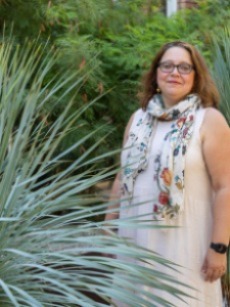
Home Department: Russian and Slavic Studies (RSSS)
Area Chair in Sociocultural Dimensions of L2 Learning
SLAT Areas of Specialization: Instructional Dimensions of L2 Learning, Linguistic Dimensions of L2 Learning, Sociocultural Dimensions of L2 Learning, Technology in Second Language Teaching
Dr. Klimanova is Associate Professor of Russian and Slavic Studies and an affiliated faculty member of the Human Rights Practice Program and the National Center for Interpretation. Her research and teaching interests center on the intersections of language studies, multilingualism, multiculturalism, and technology. She teaches in the Russian Studies Program, the Second Language Acquisition and Teaching (SLAT) doctoral program, and the MA Program in Human Rights Practice. Dr. Klimanova also serves as Core Faculty and the Social-Cultural Dimensions Area Chair in the SLAT Doctoral Program.
Dr. Klimanova is the author of Identity, Multilingualism, and CALL (2022) and co-director of LLC Commons, a curricular resource project for Russian language instruction. She is also the principal investigator of Footprints, a program focused on educating language teachers in place-based learning and critical pedagogies. Her scholarly work has appeared in journals such as Foreign Language Annals, Critical Inquiry in Language Studies, Language Learning & Technology, Russian Language Journal, and others. She is the Editor-in-Chief of Russian Language Journal and an Associate Editor for the Issues in the Teaching of East European and Eurasian Languages and Cultures series. She serves as Secretary for the Computer-Assisted Language Instruction Consortium (CALICO).
Dr. Klimanova welcomes students interested in exploring the linguistic and cultural dynamics of technology, language learning, and multilingualism.
Courses Taught:
RSSS150B1 – Eastern European Cinema in a Social Context
RSSS150B2 – Multicultural Russia
RSSS308 – Communicating in a Cultural Context
RSSS461 – Human Rights in Eurasia
RSSS590 – Identity, Language, and Nation
RSSS597 – Language and Digital Media
RSSS579 - Second/Foreign Language Teaching and Learning

